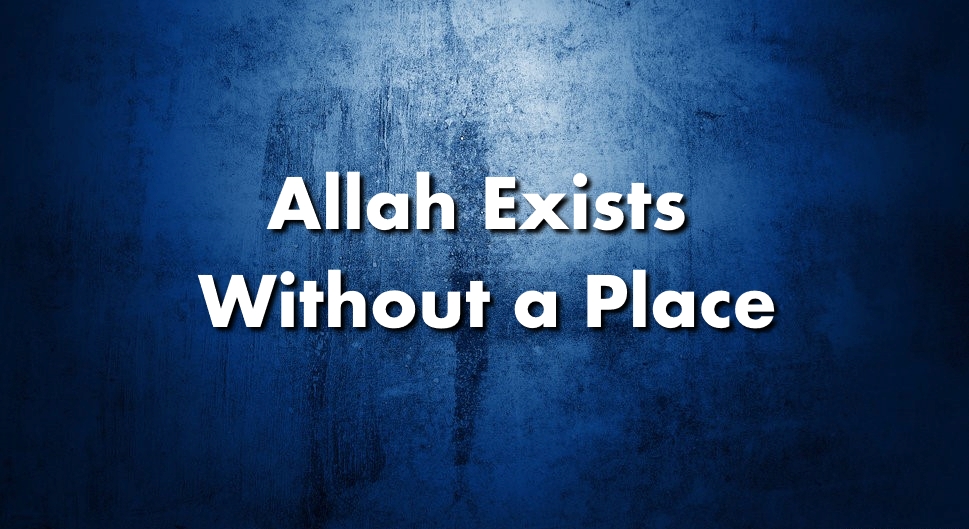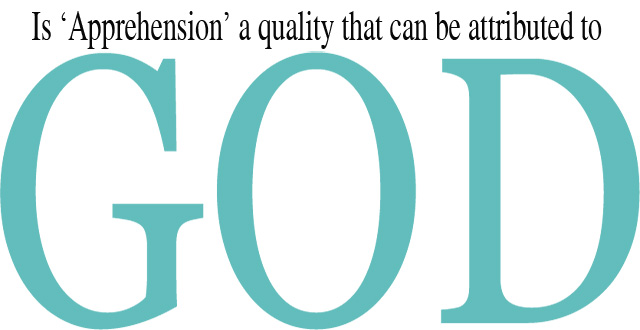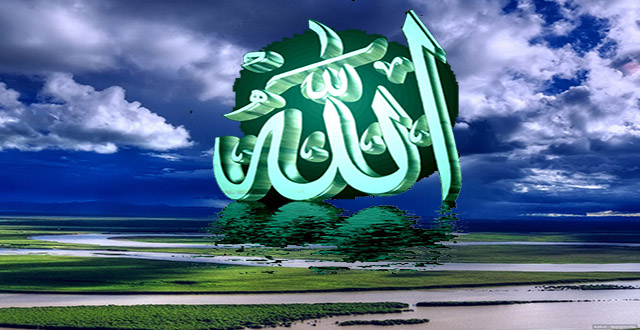Why cannot there be more than one eternal being (meaning that a number of eternal beings could exist together)?
Every being in this world except – God Almighty – is dependent upon God in its initial phase of existence in addition to its continuance. The doctrine of Tawhid implicates a single being which is independent, needless and the cause of all creatures; for according to the law of cause and effect and the logical inadmissibility of circular argument (dowr) and infinite regress (tasalsul), every entity is required to have a cause before it finally concludes at a cause which is independent and needless. As a result, the existence of several eternal beings in the sense that each one of them could exist independently is impossible. However, according to the ayahs of Quran and ahadith, eternal beings – other than God – do exist but are completely dependent upon God.
The beings of this universe are divided into two kinds. On one side is the being that is reliant on its own essence and is free from need. This being is named the independent being that which is the wajib al-wujud. The other kinds of beings are those who in and of themselves have no independence whatsoever and are in need of another being other than themselves and are entitled as mumkin al-wujud. In other words, when we explore the essence of a mumkin al-wujud, in and of itself it is ontologically neutral to both existence and inexistence and in order to morph out of this form it needs a cause other than itself, as opposed to Wajib al-Wujud Almighty who’s existence is necessary and is free from need.
In order to explain who is the first being and cause of all causes one must note that without doubt the cause of all causes is Allah Almighty, hence the being that has been there from the beginning is the holy essence of Allah. According to the holy ayahs and reason, in addition to being azali (being there from the very beginning), he is, for the same reason, everlasting and eternal as well; because the being that can be the cause of all creatures must lack even the slightest deficiency. This is because the prerequisite of deficiency is need and a being in which is needy is itself an effect of a more complete being. In this case if we claim that wajib al-wujud isn’t eternal and will perish, we have accepted that it is an effect and this contradicts God’s essence.
Can another being other than God Almighty be azali and eternal?
According to what we see in the Quran and the ahadith, it has been unequivocally stated that mankind does not perish after death; he transfers from this mortal and temporary world to the everlasting world and is provided sustenance from his lord. [1]
Moreover, the term “khaledun (eternal)” has been stated in numerous sessions of the Quran, whether it has been used for those who are eternally in Hell [2] or those who eternally reside in the everlasting Heaven. [3]
Therefore, based on the explicit assertion of the Quran, for sure, there are other eternal beings along with God Almighty but the distinctive element between God’s eternality and other beings is the essence of these entities. The dhat or essence of one is in absolute need (it is need itself) and calls for a cause from outside of itself to grant it existence, while the other being is richness and abundance itself; this means that if mumkin al-wujud can live for eternity, it will never take an independent form cut off from everything else. The need and contingency to a cause constantly and continuously accompanies mumkin al-wujud and its form of eternality depends upon an independent essence which would be God Almighty.
God Almighty is free from need because he is wajib and the origin and cause of all creatures.
However the real question is does mumkin al-wujud need a cause after coming into existence – as its continuance – as well as in the time of its creation? In other words, why does wujub bil-ghayr (necessity obtained through another) invariably shadow mumkin al-wujud?
To respond to this question, we must first realize the criterion as to why effects (ma’loul) necessarily call for a cause (illah)? If we are able to prove that the criterion of neediness and dependence is an essential element instilled in the effect, we can, then, deduce that as long as a mumkin being exists, it carries this need with itself; considering that the dhati (essential element) of an entity never departs it. In response to this inquiry many arguments have been presented, and each one of them calls for a separate discussion in order to be stated, explained and reviewed. However, the most accurate viewpoint, which belongs to Mulla Sadra, is that the reason for the neediness and dependence of effects on causes is imkan and not the aspect of huduth (temporal creation). By proving this theory, the dependence on causes for continuance and sustenance (baqa’) will be proven as well. On the contrary, some believe huduth is the principle basis of the neediness of a cause. Meaning that the huduth of an effect is the reason why it has to have a cause, hence an eternal being must be essentially necessary (wajib bi-dhat). Given this presumption this group of philosophers has wrongly perceived that an effect solely needs a cause in its initial stage of existence, as opposed to needing it for its continuance; suggesting that there are eternal independent beings alongside God. [4]
Mulla Sadra expounds the criterion for the neediness upon a cause using two expositions. The first exposition revolves around imkan mahuwi (essential contingency). Imkan mahuwi entails that Imkan is the characteristic of the mahiya (quiddity) in respect to it being considered in and of itself, outside the domain of existence and inexistence (min haythu hiya hiya), for it is this sense that mahiya is neutral to existence and inexistence and imkan is characterized as the neutral relationship of mahiya to existence and inexistence.
The second exposition is based on imkan faqri (existential contingency). The interpretation of Imkan faqri or wujudi is that the identity and essence of the effect, by itself, is nothing but need and dependence on the cause. Thus, effects – whether they are temporally haadeth (temporal) or qadim (pre-existent) – are dependence itself, upon causes. The presumption of an effect without a cause is self-contradictory; [5] for if a mumkin is not needy, it is therefore free from need and independent while the truth of the matter is that the sole being that doesn’t require a cause is wajib al-wujud. As a result we inevitably end up with an entity that is both wajib and mumkin! This reasoning can adequately respond to those who believe huduth of the mumkin to be the criterion of neediness of causes. When they come across the argument of how this mumkin being continues in its existence they simply assert that it doesn’t have a cause. This is exactly where they have partnered two opposites and the partnership of two opposites is inadmissible; for it is incoherent to say that a mumkin does not plead for a cause, because if it can withstand existing, without a cause for even a moment, it must consequently be wajib, when at the same time we initially supposed it was mumkin.
Moreover, the existence of two eternal beings that are independent is also impossible; because this contradicts the oneness of wajib al-wujud that which, in turn, proves the tawhid of God. It has been established, in that context, that two wajib al-wujuds cannot exist together; for duality is characterized when on top of their similarities, the two entities possess differences as well. In other words, both wajib al-wujuds are combined of similarities and differences, making them a compound entity and consequently needy and wajib al-wujud cannot have neediness.
Therefore, when we establish “essential contingency” for a being, this quality (contingency) belongs to its wujud (existence). “Essential contingency” is completely identical to the need and contingency imbedded in the essence of the effect and need and contingency are dhati to a mumkin. When a quality is dhati to an entity it essentially cannot be separated and invariably accompanies it as long as the entity exists. As a result, as long as the effect exists its need and contingency upon a cause also exist. Now if we put this logical conclusion beside the ahadith that suggest the eternality of mankind, we can extract that beings other that God can be eternal but nevertheless completely depend on God Almighty.
[1]وَ لَا تحَسَبنَ الَّذِينَ قُتِلُواْ فىِ سَبِيلِ اللهِ أَمْوَاتَا بَلْ أَحْياءٌ عِندَ رَبِّهِمْ يرْزَقُون
Aal Imraan:169.
[2]وَ الَّذِينَ کَفَرُوا وَ کَذَّبُوا بِآياتِنا أُولئِکَ أَصْحابُ النَّارِ هُمْ فِيها خالِدُونَ
Baqarah:39.
[3]وَ بَشِّرِ الَّذِينَ آمَنُوا وَ عَمِلُوا الصَّالِحاتِ أَنَّ لَهُمْ جَنَّاتٍ تَجْرِي مِنْ تَحْتِهَا الْأَنْهارُ کُلَّما رُزِقُوا مِنْها مِنْ ثَمَرَةٍ رِزْقاً قالُوا هذَا الَّذِي رُزِقْنا مِنْ قَبْلُ وَ أُتُوا بِهِ مُتَشابِهاً وَ لَهُمْ فِيها أَزْواجٌ مُطَهَّرَةٌ وَ هُمْ فِيها خالِدُونَ
Baqarah:25.
[4] Huduth means for the necessity of existence to come to an entity after it lacked it, or for the necessity of its inexistence to come after it bore it. Necessity is the criterion for needlessness of a cause, not the criterion for need. Therefore, huduth cannot be seen as the criterion for need of a cause, neither the whole criterion nor part of it nor a condition of it. As a result, the criterion for a mumkin al-wujud to be in need of a cause, is imkan (i.e., contingency). The reason being is that for an entity to have imkan means for it not to have the necessity of existence or the necessity of inexistence. In other words, only something that isn’t necessity or something inseparable from necessity and since huduth is inseparable from necessity of existence or inexistence, it cannot be the criterion for the need of a mumkin entity for a cause, but since imkan is the lack of necessity of existence or inexistence, it can be the criterion for such. Rabbani Golpaygani, Ali, Idhaah al-Hikmah fi Sharh Bidayah al-Hikmah, p. 193, The International Center for Islamic Studies, Qom.
[5] Rabbani Golpaygani, Ibid, p. 195.









